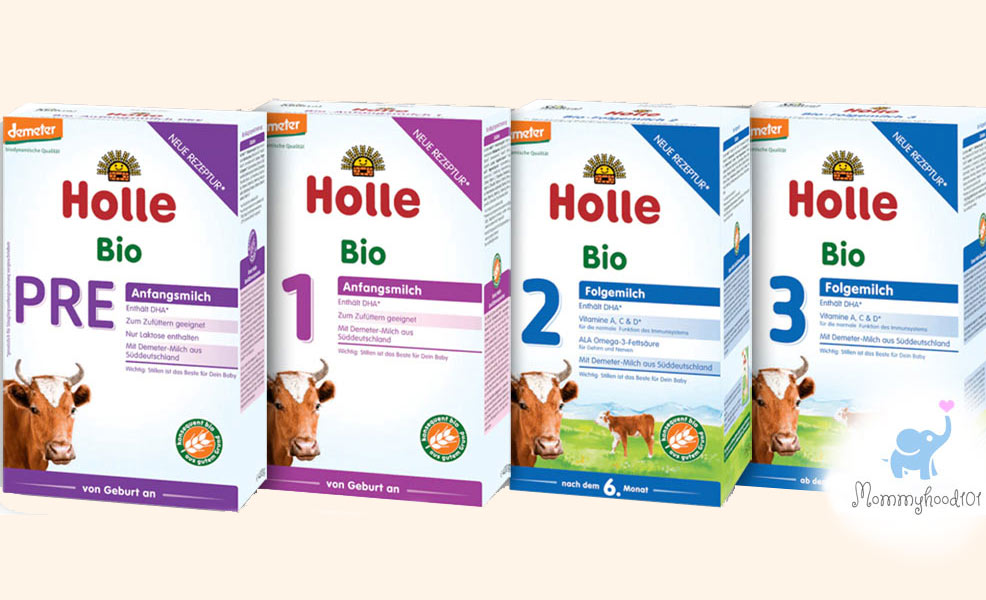
Holle Formula
Lactose intolerance is a common condition that affects many people, including babies. It occurs when the body is unable to properly digest lactose, a sugar found in milk and dairy products. This is due to a deficiency of the enzyme lactase, which is responsible for breaking down lactose into simpler sugars that can be absorbed into the bloodstream. When lactose is not properly digested, it can cause a range of symptoms such as bloating, gas, diarrhea, and stomach cramps. In babies, these symptoms can be particularly distressing and can lead to feeding difficulties and poor weight gain.
Lactose intolerance in babies can be either temporary or permanent. Temporary lactose intolerance can occur after a baby has had a stomach bug or other illness that has damaged the lining of the intestines, leading to a temporary decrease in lactase production. This type of lactose intolerance usually resolves on its own within a few weeks. Permanent lactose intolerance, on the other hand, is a genetic condition that is present from birth and requires ongoing management.
Introduction to Holle Formula
Holle formula is a popular choice for parents who are looking for an organic and natural alternative to breast milk or conventional infant formula. It is made by Holle, a Swiss company that has been producing organic baby food and formula for over 80 years. Holle formula is made from high-quality, biodynamic milk from cows raised on organic farms. The company is committed to using only the best ingredients and follows strict European Union regulations for organic farming and production.
Holle formula comes in several different varieties to suit the specific needs of babies at different stages of development. There are formulas for newborns, infants, and older babies, as well as special formulas for babies with specific dietary needs, such as those with allergies or intolerances. The company also offers a range of baby cereals and porridges made from organic grains and fruits, providing a complete and balanced diet for babies from birth through the toddler years.
The Composition of Holle Formula
Holle formula is made with carefully selected ingredients to provide babies with the nutrients they need for healthy growth and development. The primary ingredient in Holle formula is organic cow’s milk, which is sourced from biodynamic farms that adhere to strict organic farming practices. This milk is rich in essential nutrients such as protein, calcium, and vitamins A and D, which are important for bone health and overall growth.
In addition to cow’s milk, Holle formula contains organic vegetable oils, such as palm oil, rapeseed oil, and sunflower oil, which provide essential fatty acids for brain development and energy. The formula also contains organic lactose, which is the natural sugar found in milk, as well as a blend of vitamins and minerals to support the baby’s immune system and overall health. Holle formula does not contain any artificial flavors, colors, or preservatives, making it a pure and natural choice for parents who want the best for their babies.
Is Holle Formula Suitable for Lactose Intolerant Babies?
Many parents wonder if Holle formula is suitable for babies with lactose intolerance. Since Holle formula contains lactose as one of its primary ingredients, it may not be the best choice for babies with lactose intolerance. However, some babies with lactose intolerance may still be able to tolerate small amounts of lactose in their diet, especially if it is in the form of a high-quality organic formula like Holle.
For babies with temporary lactose intolerance, Holle formula may be a suitable option once their digestive system has had time to recover from an illness or infection. However, for babies with permanent lactose intolerance, it is important to consult with a pediatrician or healthcare provider before introducing any new formula or dietary changes. They can provide guidance on the best options for managing lactose intolerance in babies and may recommend alternative formulas that are specifically designed for babies with lactose intolerance.
Tips for Using Holle Formula with Lactose Intolerance
If a baby has been diagnosed with lactose intolerance but can still tolerate small amounts of lactose, there are some tips that can help make using Holle formula more manageable. It may be helpful to start with a small amount of Holle formula and gradually increase the amount over time to allow the baby’s digestive system to adjust. It can also be beneficial to feed the baby smaller, more frequent meals to reduce the amount of lactose they are consuming at one time.
For babies with more severe lactose intolerance, it may be necessary to use a lactose-free formula or an alternative formula specifically designed for babies with lactose intolerance. These formulas are made with non-dairy sources of carbohydrates, such as corn syrup solids or glucose polymers, which are easier for babies with lactose intolerance to digest. It is important to work closely with a healthcare provider to find the best solution for managing lactose intolerance in babies and ensure they are receiving the nutrients they need for healthy growth and development.
Alternatives to Holle Formula for Lactose Intolerant Babies
For babies with lactose intolerance who are unable to tolerate any amount of lactose in their diet, there are several alternative formulas available that are specifically designed for their needs. These formulas are made with non-dairy sources of carbohydrates, such as corn syrup solids or glucose polymers, which are easier for babies with lactose intolerance to digest. They also contain all the essential nutrients that babies need for healthy growth and development.
In addition to specialized lactose-free formulas, there are also hypoallergenic formulas available that are designed for babies with multiple food allergies or intolerances, including lactose intolerance. These formulas are made with extensively hydrolyzed proteins or amino acids, which are less likely to cause allergic reactions or digestive issues in babies with sensitive stomachs. These specialized formulas can be a good option for babies who have difficulty tolerating traditional cow’s milk-based formulas.
Making the Best Choice for Your Baby’s Nutrition
When it comes to feeding a baby with lactose intolerance, it is important to work closely with a healthcare provider to find the best solution for their individual needs. While Holle formula may not be suitable for all babies with lactose intolerance, it can be a good option for those who can tolerate small amounts of lactose in their diet. For babies with more severe lactose intolerance, there are specialized formulas available that are designed to meet their specific dietary needs.
Ultimately, the most important thing is to ensure that babies with lactose intolerance are receiving the nutrients they need for healthy growth and development. Whether it’s through specialized formulas or dietary modifications, there are many options available to help manage lactose intolerance in babies and provide them with the best possible nutrition. By working closely with a healthcare provider and carefully monitoring the baby’s symptoms and growth, parents can make informed decisions about their baby’s diet and ensure they are thriving despite their lactose intolerance.


